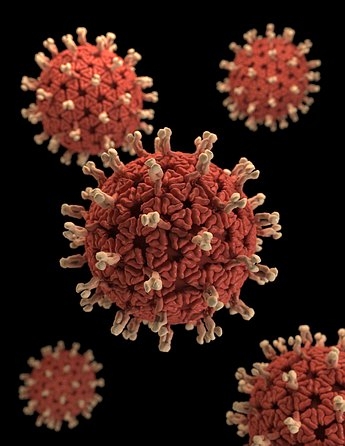By Jim Davis - Florida Catholic
MIAMI GARDENS | Companies in several nations are competing to be the first to develop a vaccine for COVID-19, and many medical experts have spoken optimistically of results by early 2021. But bioethicist Father Alfred Cioffi of St. Thomas University tossed out several red flags.
One is how fast the coronavirus is changing. He explained that COVID-19 is a retrovirus, simpler than most germs — and more vulnerable to mutation from chemicals and ultraviolet light.

Image of the coronavirus by Centers for Disease Control via unsplash.com.
That's why it's hard to develop vaccines against illnesses like the flu. It takes up to two years to develop the vaccines, but coronaviruses may mutate every year.
The North American strain of COVID-19 may already be different — and more dangerous — than the version that attacked Europe, Father Cioffi said.
More bad news: Even people who develop antibodies against the coronavirus don’t reach total immunity.
"A lot of people are getting reinfected," Father Cioffi said. "The antibody tends to wear off after several months. So immunity is not 100 percent."
Any good news? Father Cioffi had some. Pandemic-related deaths amount only to five percent of all COVID-19 cases. "Therefore, 95 percent are surviving. That's a very good thing."
He went further: Many other people may well have recovered from the coronavirus on their own without being tested. If they lower the total to two to five percent, "that's equivalent to a nasty flu season," Father Cioffi said.
Because of the speed of the virus, and the slowness of medical research, Father Cioffi suspects the U.S. will achieve "herd immunity" — where a large part of the population develops antibodies against the illness — before a vaccine is distributed.
That puts the burden back on individuals, Father Cioffi said — the "ethics" part of his specialty in bioethics.
"We can't control the virus, but we can control our behavior," he said. "Bars, parties, beaches — they're causing spikes among people in their 20s and 30s. The best behavior we can have is to exercise prudence."
On a practical level, Father Cioffi recommended thinking less "structurally" about the coronavirus and more "functionally," like dust and dirt. "I can't see it, but it's trying to contaminate me."

